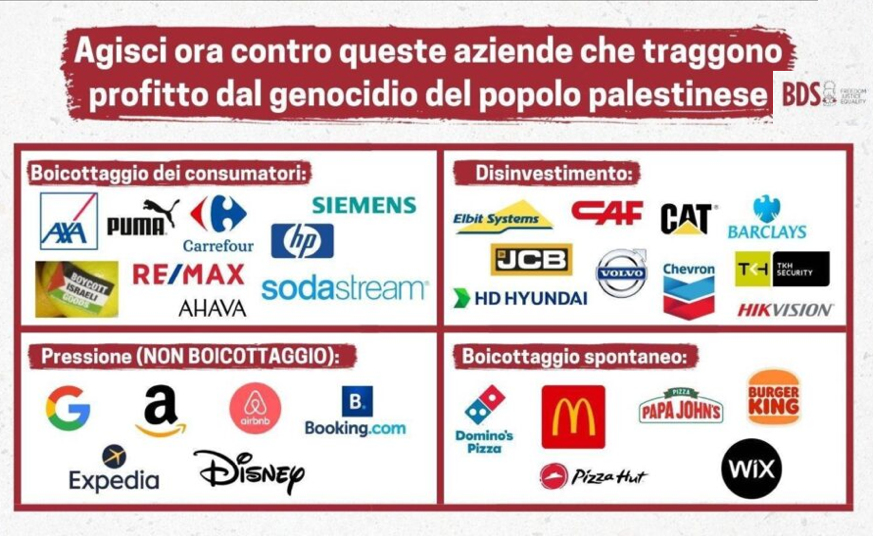Eurovision 2024: Iceland Leads Calls To Boycott Israel Over Human Rights Violations

Table of Contents
Iceland's Rationale for Boycott Call
Iceland's official statement explicitly cites ongoing human rights violations against Palestinians as the primary reason for its call to boycott Eurovision 2024 in Israel. The Icelandic government and numerous civil society groups have expressed deep concern over Israel's treatment of the Palestinian population. These concerns are grounded in decades of documented human rights abuses.
Specific instances highlighted include:
- The ongoing Israeli occupation of Palestinian territories: This prolonged occupation has led to displacement, restricted movement, and the denial of fundamental rights for Palestinians.
- The treatment of Palestinian prisoners: Reports of torture, inhumane conditions, and denial of due process are widely documented by human rights organizations.
- The demolition of Palestinian homes: The systematic destruction of Palestinian homes leaves thousands homeless and exacerbates the humanitarian crisis.
- Restrictions on freedom of movement and assembly for Palestinians: These restrictions severely limit Palestinians' ability to participate in daily life and express their political views.
- Discriminatory practices against Palestinians: Palestinians face systemic discrimination in access to resources, healthcare, and education, creating a deeply unequal society.
These allegations are supported by numerous reports from reputable organizations such as Human Rights Watch, Amnesty International, and B'Tselem, providing substantial evidence for Iceland's concerns. These organizations provide detailed documentation which should be consulted for a complete understanding of the human rights situation.
International Support and Opposition to the Boycott
While Iceland has taken a prominent stance, the international response to the proposed Eurovision 2024 boycott is mixed. Several other countries and organizations have expressed support for the boycott, highlighting their solidarity with the Palestinian cause and their concern over human rights violations. However, significant opposition also exists.
Arguments for and against the boycott can be summarized as follows:
Arguments for the Boycott:
- Moral imperative to address human rights violations.
- Sending a clear message to Israel regarding its policies.
- Raising global awareness about the Palestinian situation.
Arguments against the Boycott:
- Concern that boycotting politicizes the Eurovision Song Contest.
- Belief that it punishes Israeli artists who are not responsible for government policies.
- Fear that it could damage the reputation and future of the Eurovision Song Contest.
The potential impact on Eurovision's image is a crucial consideration. A successful boycott could lead to negative media coverage, potentially tarnishing the contest's reputation as a unifying celebration of music and culture.
The Impact of a Boycott on Eurovision 2024
A successful boycott of Eurovision 2024 could have profound consequences:
- Reduced participation: Several countries might withdraw their participation, diminishing the event's scale and diversity.
- Lower viewership: Boycott calls could discourage viewers, leading to lower ratings and reduced revenue.
- Financial implications: Reduced participation and viewership would directly impact the financial viability of the event for the host country and the Eurovision organization.
- Damage to Eurovision's reputation: The controversy could negatively impact the Eurovision Song Contest's image as a symbol of unity and international cooperation.
Logistically, organizing a Eurovision Song Contest under the shadow of a significant boycott presents immense challenges. The organizers would likely face increased pressure to address the human rights concerns. The legal implications are also complex, with potential legal challenges from boycotters and those who oppose the boycott.
Alternative Solutions and Calls for Action
Rather than solely focusing on a boycott, some propose alternative approaches to address the human rights concerns surrounding Eurovision 2024. These include:
- Holding human rights awareness events alongside Eurovision: This allows for raising awareness without disrupting the event itself.
- Pressuring the Eurovision organization to address human rights concerns: This could involve demanding greater transparency in host country selection processes and incorporating human rights considerations into future decisions.
- Promoting initiatives focused on peace and reconciliation in the region: Supporting organizations dedicated to peacebuilding efforts could offer a more constructive approach to addressing the underlying issues.
These approaches offer a pathway to addressing the ethical dilemmas without completely disrupting the Eurovision Song Contest.
The Future of Eurovision 2024 and the Boycott Movement
The debate surrounding the Eurovision 2024 boycott in Israel highlights a fundamental conflict between the desire to enjoy a cultural event and the moral imperative to address human rights violations. Iceland's leadership in initiating this debate has brought the issue to the forefront of the international stage. The core concerns center on the ongoing Israeli occupation, the treatment of Palestinian prisoners, the demolition of homes, restrictions on movement, and discriminatory practices against Palestinians. These are not isolated incidents but patterns of behavior documented by credible human rights organizations.
Learn more about the human rights situation in Palestine and decide whether you will support a boycott of Eurovision 2024. Consider signing petitions, contacting your representatives, or supporting organizations working to promote human rights and peace in the region. Your informed participation is crucial in shaping the future of this significant event and its implications for human rights.

Featured Posts
-
 Replacing Araujo Dean Huijsen Emerges As A Candidate For Barcelona
May 14, 2025
Replacing Araujo Dean Huijsen Emerges As A Candidate For Barcelona
May 14, 2025 -
 Tommy Fury Budapesten Visszateres Es Uezenet Jake Paulnak
May 14, 2025
Tommy Fury Budapesten Visszateres Es Uezenet Jake Paulnak
May 14, 2025 -
 Central Londons Newest Chocolate Destination The Lindt Experience
May 14, 2025
Central Londons Newest Chocolate Destination The Lindt Experience
May 14, 2025 -
 Ywrwfyjn 2025 Alswysryt Tued Lers Ghnayy Astthnayy Fy Bazl
May 14, 2025
Ywrwfyjn 2025 Alswysryt Tued Lers Ghnayy Astthnayy Fy Bazl
May 14, 2025 -
 Damiano David Povernennya Na Stsenu Yevrobachennya
May 14, 2025
Damiano David Povernennya Na Stsenu Yevrobachennya
May 14, 2025
